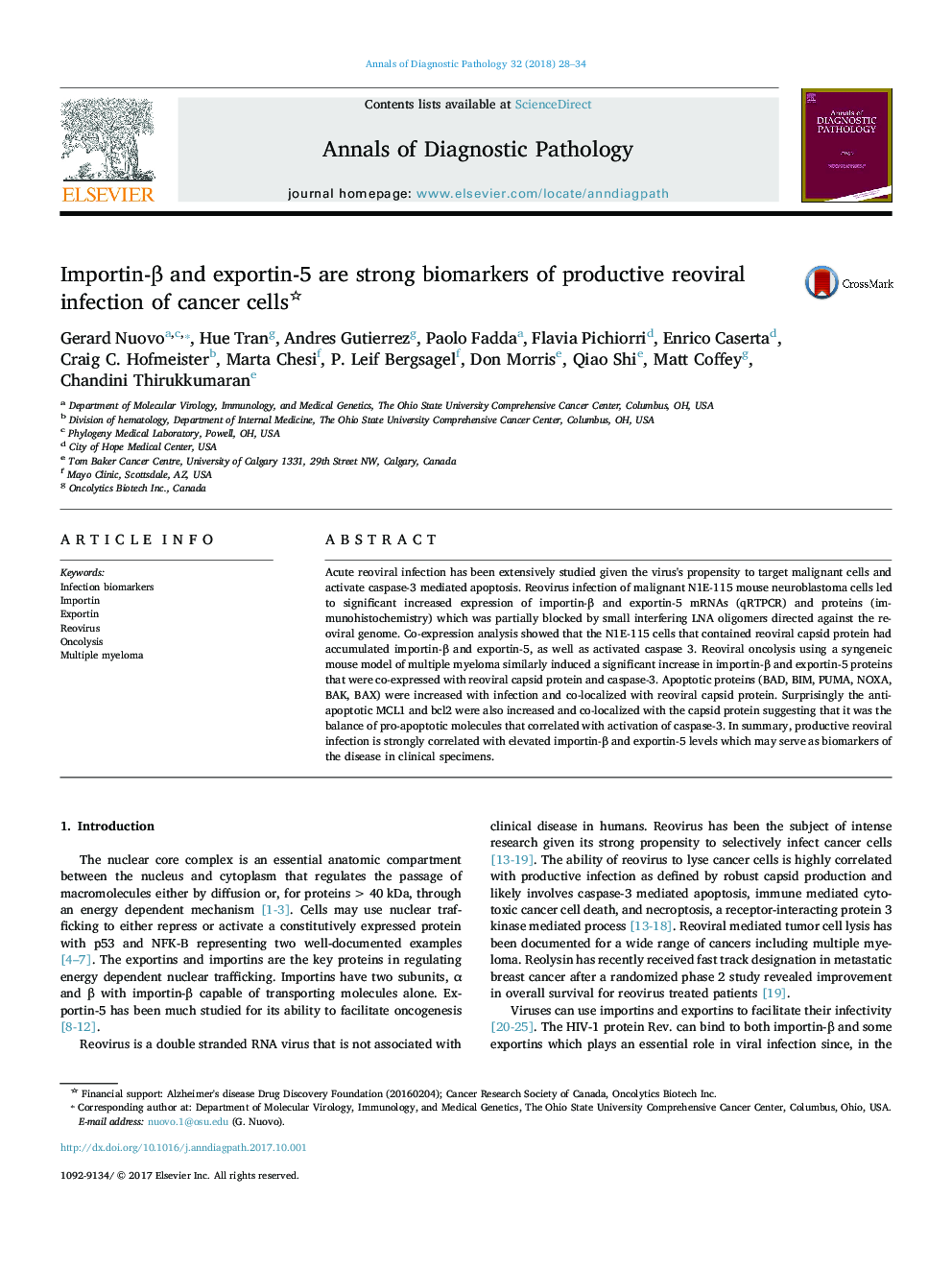| Article ID | Journal | Published Year | Pages | File Type |
|---|---|---|---|---|
| 5715814 | Annals of Diagnostic Pathology | 2018 | 7 Pages |
â¢Productive reoviral infection is strongly effective in killing cancer cells from a wide variety of tumorsâ¢This study highlights new immunohistochemistry markers of productive reoviral infection including importin-β and exportin-5â¢Additional data suggests that importin-β and exportin-5 expression are biomarkers of acute viral infection in general
Acute reoviral infection has been extensively studied given the virus's propensity to target malignant cells and activate caspase-3 mediated apoptosis. Reovirus infection of malignant N1E-115 mouse neuroblastoma cells led to significant increased expression of importin-β and exportin-5 mRNAs (qRTPCR) and proteins (immunohistochemistry) which was partially blocked by small interfering LNA oligomers directed against the reoviral genome. Co-expression analysis showed that the N1E-115 cells that contained reoviral capsid protein had accumulated importin-β and exportin-5, as well as activated caspase 3. Reoviral oncolysis using a syngeneic mouse model of multiple myeloma similarly induced a significant increase in importin-β and exportin-5 proteins that were co-expressed with reoviral capsid protein and caspase-3. Apoptotic proteins (BAD, BIM, PUMA, NOXA, BAK, BAX) were increased with infection and co-localized with reoviral capsid protein. Surprisingly the anti-apoptotic MCL1 and bcl2 were also increased and co-localized with the capsid protein suggesting that it was the balance of pro-apoptotic molecules that correlated with activation of caspase-3. In summary, productive reoviral infection is strongly correlated with elevated importin-β and exportin-5 levels which may serve as biomarkers of the disease in clinical specimens.
